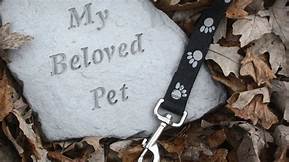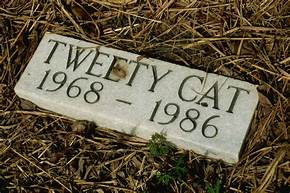What Not to Say When a Pet Dies
The death of a beloved pet is a difficult and emotional time for any pet owner. While you may want to offer your condolences, it's important to be mindful of what you say to someone who has lost a pet. Here are some things you should avoid saying:

Empty platitudes
1. "At least they're in a better place now." 2. "It was their time to go." 3. "Don't worry, you can always get another pet."
These statements may seem well-intentioned, but they can actually be hurtful and dismissive of the pain that the pet owner is feeling. Instead, try to say something that acknowledges their loss and shows that you care. For example, you could say, "I'm so sorry for your loss. I know how much you loved your pet." or "I'm here for you if you need anything."
Unhelpful advice
1. "You should just get over it." 2. "It's just a pet." 3. "At least you still have other pets."
These statements are not only insensitive, but they are also untrue. The death of a pet is a significant loss, and it takes time to grieve. It's important to allow the pet owner to grieve in their own way and at their own pace. Instead of offering unsolicited advice, simply be there for them and listen if they want to talk.
Personal anecdotes
1. "I know how you feel. I lost my pet a few years ago." 2. "My pet died a few months ago, and I'm still not over it." 3. "I've never had a pet, but I can imagine how you must be feeling."
While it may seem like you're trying to relate to the pet owner, sharing your own experiences can actually make them feel worse. Instead, focus on listening to them and offering your support. If you do want to share a personal anecdote, make sure it's brief and relevant to the situation.
Religious or spiritual comments
1. "God needed your pet more than you did." 2. "Your pet is in heaven now." 3. "Your pet's death is a sign that you're being tested."
Unless you know for sure that the pet owner shares your religious or spiritual beliefs, it's best to avoid making these kinds of comments. They can be seen as patronizing or insensitive, and they may not provide the comfort that you intend.
Declaration: All article resources on this website, unless otherwise specified or labeled, are collected from online resources. If the content on this website infringes on the legitimate rights and interests of the original author, you can contact this website to delete it.



